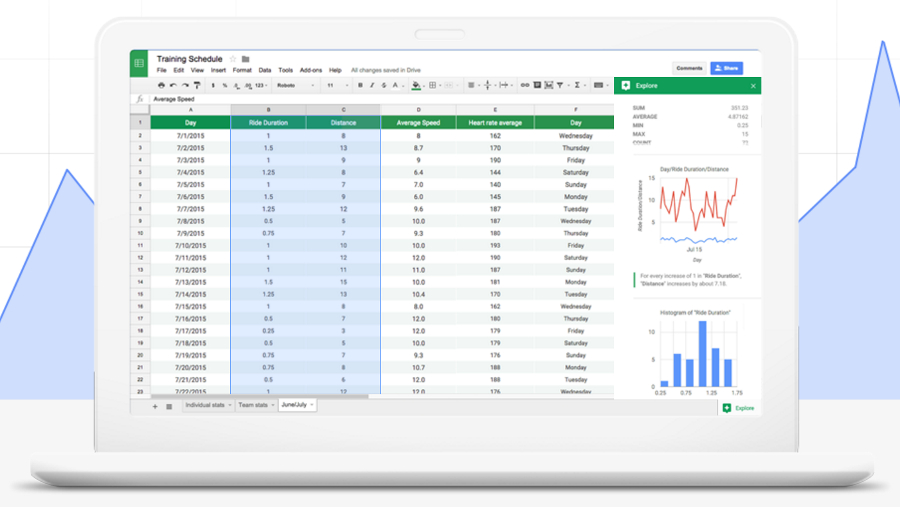Google wants to better challenge Microsoft Office with these new features
Docs, Sheets and Slides just got intelligent assistants

Google has been beavering away with its online apps, and has just pushed out some fresh tweaks for Google Drive, as well as Docs, Sheets and Slides (which are now part of G Suite, the new name for Google Apps for Work).
The biggest change is to the latter productivity apps which have witnessed the introduction of a new Explore feature – essentially an intelligent assistant to help you better craft your documents in various different ways.
With Google Docs, if you're writing on a certain topic, Explore will surface related content in a side panel which might be online articles pertaining to the subject in question, relevant images and so on – all of which you can simply drag over to use. It'll also automatically highlight any relevant files you have stored in your Google Drive.
With Sheets, click the Explore button (the green one in the bottom-right corner, incidentally) and you'll be able to type in straightforward questions phrased in natural language, with the software then producing an answer.
So for example you can ask 'how many units of laptops did we sell in September?' Or perhaps inquire about sales for multiple months, and Sheets will list the relevant figures.
Shortcuts for various formatting suggestions are also highlighted, which is pretty neat, too.
As for the Slides app, Explore is all about making your presentations look better, and it will help you find relevant images, and offer suggestions of rather nifty-looking layouts for a slide which can be applied with one click.
Sign up to the TechRadar Pro newsletter to get all the top news, opinion, features and guidance your business needs to succeed!
Clearly, Google doesn't want to be left behind compared to Microsoft's productivity progress of late, and all of these Explore options run along similar lines to what its rival is doing in making its Office 365 suite more intelligent with features like Tap for Word and Outlook, and QuickStarter in PowerPoint.
Driving forward
So what's new with Google Drive? Something called Quick Access, which is powered by machine learning and attempts to predict the files you'll need next. Essentially, the feature monitors how you use Drive, looking for patterns and things like, for example, regular reviews of a forecasting spreadsheet. It'll spot these patterns and then automatically produce that spreadsheet at the relevant time going forward.
Google reckons that Quick Access will reduce the average time it takes to find the right file by some 50%, because you simply won't have to search for files sometimes – they'll be presented right in front of you when needed.
The company has also tweaked Calendar with another feature which is driven by machine intelligence: Find a time. This makes suggestions of meeting times and rooms which are available.
The Explore updates for Google's productivity apps are live now, and Quick Access is also out and available to G Suite customers on Android. Find a time is already out on Android, too, and will soon also be on iOS, then later this year it will arrive on the web.
- Google also recently updated Translate to make it almost as good as a human translator
Darren is a freelancer writing news and features for TechRadar (and occasionally T3) across a broad range of computing topics including CPUs, GPUs, various other hardware, VPNs, antivirus and more. He has written about tech for the best part of three decades, and writes books in his spare time (his debut novel - 'I Know What You Did Last Supper' - was published by Hachette UK in 2013).